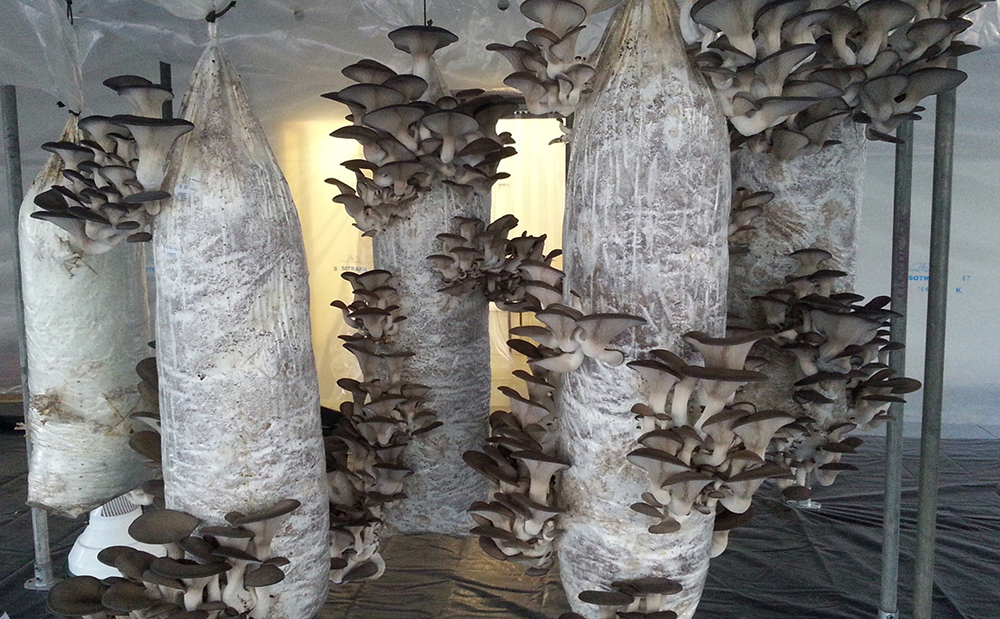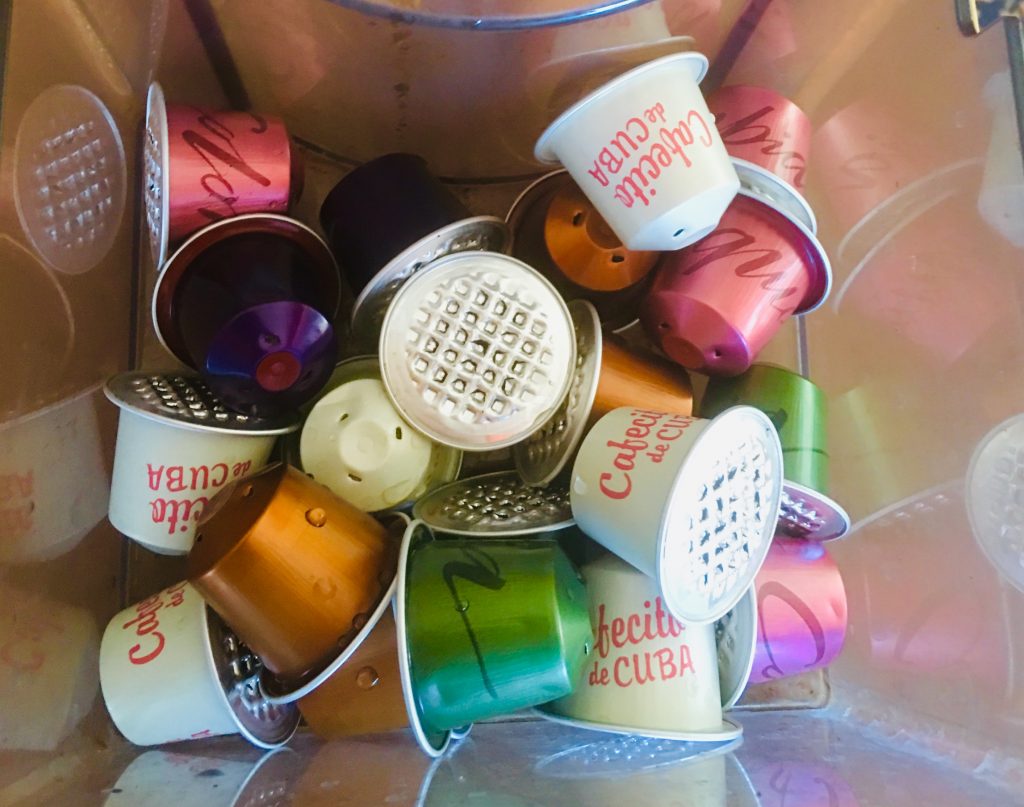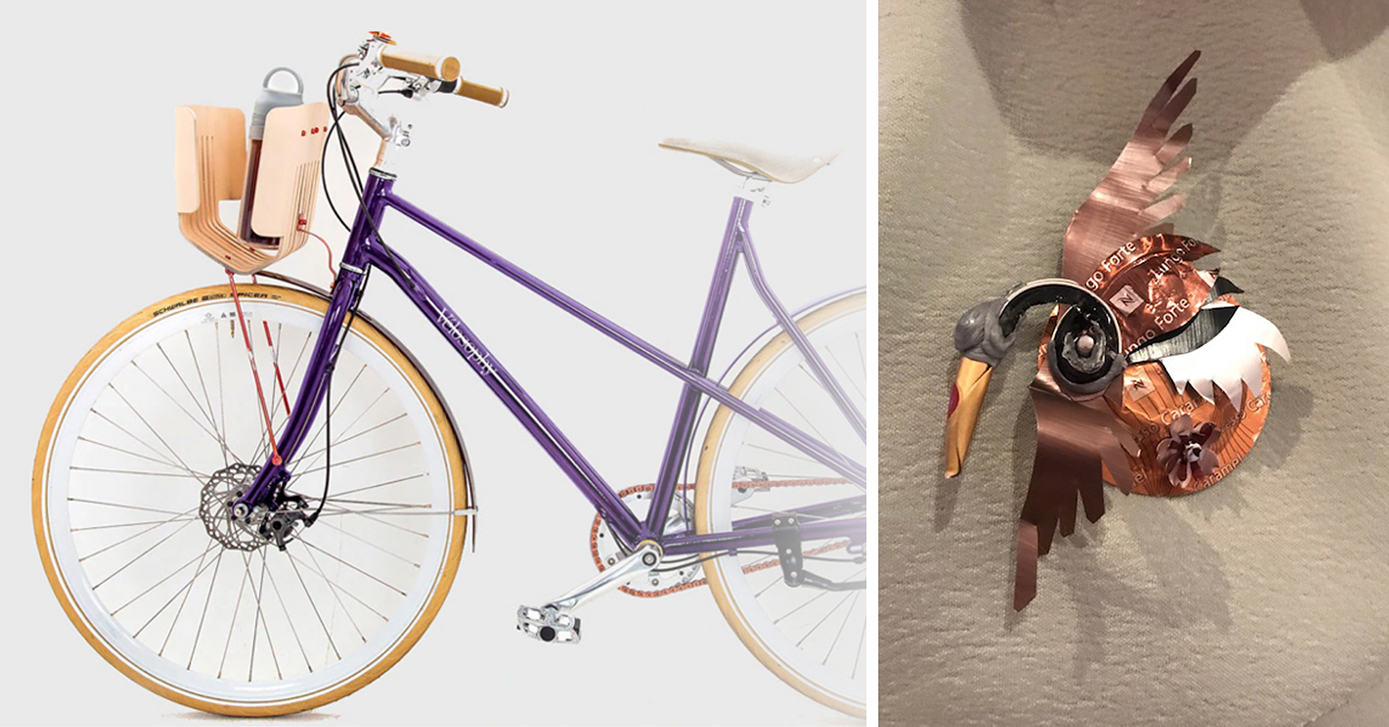Would you divorce your daily cup of coffee? Would you do this if you knew what effect those coffee grounds had in the landfill; creating harmful greenhouse gas emitting waste? Thankfully there are other options to giving up coffee for life, as there are multiple scenarios of upcycling coffee grounds into a useful second life. No “Grounds for Divorce” required! Yay!
THIS IS SECOND IN OUR SERIES OF There is no “Away” .
GROUNDED Upcycling
GROUNDED was founded a year ago by two NYU Stern Social Entrepreneurship course participants, Parker Reposa and Drew Enyedi. After researching the values of organic waste streams headed for the landfill, they focused on coffee grounds (New York city; thousands of coffee shops & restaurants, right?). GROUNDED is selling two closed-loop cosmetic products; Soap and a Facemask. They are researching fireplace logs made from compacted coffee grounds as another circular economy product. As their scope grows and they begin scaling up, the process becomes both very interesting and very challenging.
In NYC alone there are over 3000 coffee shops, each producing an estimated 200lbs of grounds per week which might equate to over 200 million lbs / year. This is a not inconsiderable quantity, but can GROUNDED piggy-back on other collection channels; possibly even municipal ones which are organized for recycling coffee grounds? Parker has talked to Julie Raskin NY Department of Sanitation senior advisor for strategic partnerships, who organized the NYC Food Waste Fair in which GROUNDED participated. Once the millions of pounds of coffee grounds have been collected (as a separate collection stream), there are issues of storage and processing. Plenty to think about regarding reuse of coffee grounds for new and innovative products on a larger scale.
 SHOES made from real coffee by German high end sneaker brand nat-2™ are vegan luxury sneakers
SHOES made from real coffee by German high end sneaker brand nat-2™ are vegan luxury sneakers
Who knew? Coffee grounds have become pretty popular, with multiple products being made from the recycled coffee grounds; cosmetics, fireplace logs, and now shoes!, coffee mugs, mushroom soil, lamps and 3D printed products, to list just a few.
MUSHROOMS
Coffee grounds as a growing medium for mushrooms is what GroCycle in the UK uses. Since 2011 they’ve recycled more than 83 tons of coffee grounds, and turned them into more than 20 tons of mushrooms!

Along the way GroCycle became experts in the techniques of using coffee grounds to grow mushrooms and have taught over 1000 people in 50 countries around the world through their online mushroom-growing courses. As the collection, storage and distribution of coffee grounds becomes more mainstream, mushroom farming/production will become a major customer base.
COMMERCIAL COMPOST
I’ve always thought that making compost from coffee grounds has to be naturally good for the garden and growing things (as are tea leaves according to my grandmother) and it was just a matter of time until someone came up with a commercial compost/soil nutrient product using coffee grounds.
REGROUND does just that. They’ve saved 268 tons of ground coffee from the landfill with their compost and soil amendment products and worm farms.
BIO-DIESEL
An experimental study shows processed coffee grounds have some validity as a bio-diesel alternative. Like most studies it’s academically written, but it’s informative and interesting; especially considering Turkeys’ centuries old culture of coffee drinkers. The study is: Valorization of spent coffee grounds recycling as a potential alternative fuel resource in Turkey:
Since there is an over abundance (some might say excess) of coffee grounds produced world wide, I’ve been pondering on where do we find a large scale need/use? Whenever I see road construction ……….
ROAD CONSTRUCTION
Civil engineers in Australia have come up with a unique way of re-purposing spent coffee grounds, which in a city the size of Sydney are estimated to produce some 3,000 tons of waste annually. Their answer to the problem? Recycle those coffee grounds into the roads we drive on.

COFFEE CAPSULES
NESPRESSO and other capsule coffees are a whole different scenario of “Grounds for Divorce”! Who indeed can face separating the capsule from the coffee grounds? We’ve been drinking Nespresso for over 20 years, and along the way there have been a couple of viable recycling options. The best was via Teracycle, who emailed us a label which we printed and affixed to the box the Nespresso capsules arrived in each month. Today Nespresso partners with UPS and supplies a bag for returning spent capsules. However, at the rate we drink coffee this is more than 2 bags a week, and UPS is several hours away!
After I completed this post, a friend in Taiwan to whom I had introduced Nespresso several years ago sent me the following images; a bike and an art piece made from up-cycled capsules.

As Designers we BUILD FOR REUSE which means we are always looking for recycled/up-cycled products to use in our build projects, and at the same time thinking through how we build things for deconstruction and reuse. Think about this: screws make it much easier to take things apart instead of nails….
Do you know of other products in the circular economy made from coffee grounds? Contact me and tell me about it.
SUMMARY:
Over to Nina Goodrich, executive director of GreenBlue to sum up the circular economy; it’s based on the recognition that…“we have to move away from what folks call our linear economy of take-make-waste, and envision a next useful life for what currently is our waste… It’s about how we build and make things so that one person’s waste becomes another person’s input materials.”
If you missed it, CHECK OUT the first post in our There is no “Away” series.
RESOURCES that might interest you.
NZ Coffee Grounds in the Garden:
UK Bio-BEAN
Au PLANET ARK
Building roads:
Grounds fueling lightbulbs
Circular economy
Grounded Upcycling video credits: Director Parker Reposa, videographer and editor Andrew Fuchs.

“Farming mushrooms requires bacterial control at high energy cost. However, either through fermentation on the farm, to peel husks off beans, or through exposure of ground beans to hot water when brewing a cup, bacteria are reduced to a minimum permitting the mushrooms to digest fibers. Thus farming mushrooms on coffee is 80 percent more energy efficient than a stand-alone energy intensive process preparing substrates can be clustered with free energy needed to prepare coffee.“ — Gunter Pauli
https://www.theblueeconomy.org/uploads/7/1/4/9/71490689/case_3_coffee__export_crop_provides_food_security.pdf